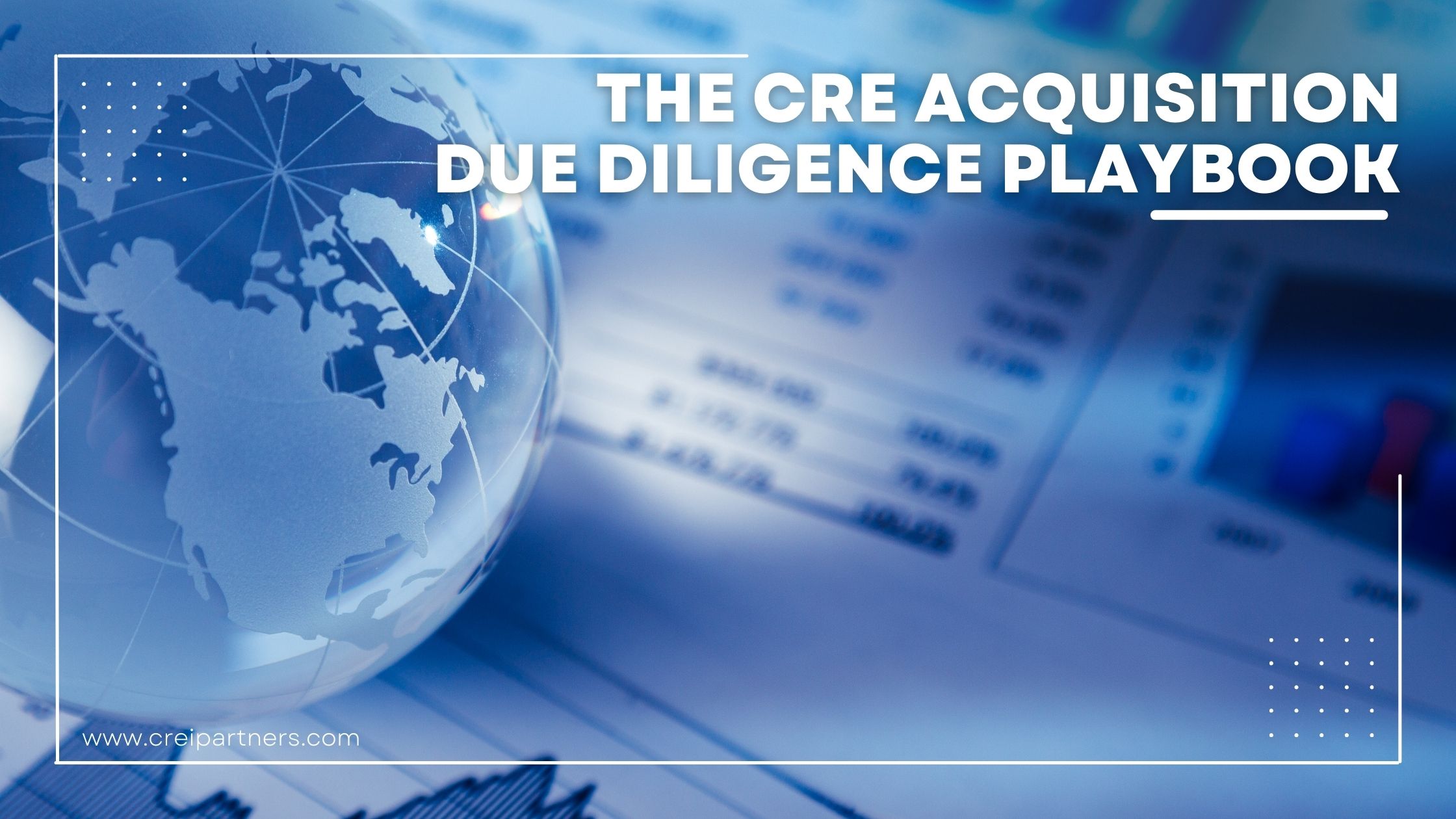At CREI Partners, we understand that our passive investors place a tremendous amount of trust in our ability to identify and execute on sound commercial real estate, or CRE, investment opportunities. That’s why our CRE due diligence process is comprehensive, thorough, and tailored to uncover any potential risks or issues that could impact the success of the deal. We take the perspective of “trust, but verify” to ensure that a property we have identified for investment has what it takes to deliver for our investors.
While lenders conduct their own due diligence focused primarily on validating the collateral value, our process goes far beyond that. It’s also important to note that due diligence is a separate process from the initial deal analysis. Deal analysis involves evaluating the property’s financials, market dynamics, and potential value-add strategies to determine if the opportunity warrants further pursuit. Due diligence, on the other hand, is the deeper dive that occurs after a deal has passed the initial screening.
Our investment property due diligence approach consists of four key pillars:
- Financial Due Diligence
- Physical Due Diligence
- Lease Audit
- Legal Due Diligence
Let’s explore each of these topics in more detail:
1. Financial Due Diligence: Validating the Numbers
This step double-checks the financial assumptions and projections used in the initial deal analysis. Key areas we scrutinize include:
- Historical income and expense statements
- Rent rolls and occupancy trends
- Utility billing and reconciliation practices
- Capital expenditure and reserve requirements
- Tax assessments and potential reassessments
2. Physical Due Diligence: Assessing the Asset’s Condition
The physical condition of the asset is paramount, as deferred maintenance or undisclosed issues can significantly impact the investment thesis. A comprehensive physical CRE due diligence typically involves:
- Property Condition Assessment (PCA): Conducted by a third-party engineering firm, a PCA includes a visual inspection of the property’s major components (roof, HVAC, plumbing, electrical, etc.) and identifies immediate and long-term capital needs.
- Environmental Site Assessment (ESA): Performed by an environmental consultant, an ESA assesses potential environmental risks such as soil contamination, asbestos, or lead-based paint.
- Unit Inspections: Inspecting a representative sample of units (10-20%) to gauge interior condition, deferred maintenance, and potential renovation scope.
Other specialized inspections may be warranted based on the property’s age, location, and specific circumstances (e.g., accessibility audits, seismic assessments).
3. Lease Audit: Understanding the Tenant Profile
For multifamily properties or retail/office spaces, a comprehensive lease audit is crucial to understand the tenant profile, potential rollover risks, and compliance with local regulations. Key components include:
- Reviewing a sample of tenant files for completeness and accuracy
- Assessing lease terms, and rent concessions
- Analyzing renewal, eviction, and turnover trends
- Evaluating the property’s screening and leasing practices
4. Legal Due Diligence: Mitigating Liabilities
The legal due diligence process aims to identify potential issues or liabilities that could impact the investment. Key areas of focus include:
- Title search and survey review
- Reviewing contracts, vendor agreements, and insurance policies
- Assessing zoning and land use compliance
- Evaluating pending or potential litigation
- Ensure property insurance quotes align with expectations
Working closely with an experienced real estate attorney is essential to navigate the legal complexities and mitigate potential risks.
An Iterative and Collaborative Process
Throughout the CRE due diligence phase, our team remains agile and responsive, adjusting the investment strategy or underwriting as new information comes to light. We foster open communication with all stakeholders, keeping our investors informed every step of the way.
Ultimately, our robust due diligence process is an investment in itself – one that safeguards your capital, minimizes surprises and ensures that the deals we pursue align with our shared multifamily investment goals.
Additional Resources:
Beyond the Deal: Lessons Learned from (Almost) Investing in Commercial Real Estate » CREI Partners
Navigating Real Estate Limited Partnerships as a New Investor » CREI Partners
James Bohan – Passive Real Estate Investing as a Tax Strategy


 Subscribe to our newsletter so you never miss out on new investment opportunities, podcasts, blogs, news and events.
Subscribe to our newsletter so you never miss out on new investment opportunities, podcasts, blogs, news and events.